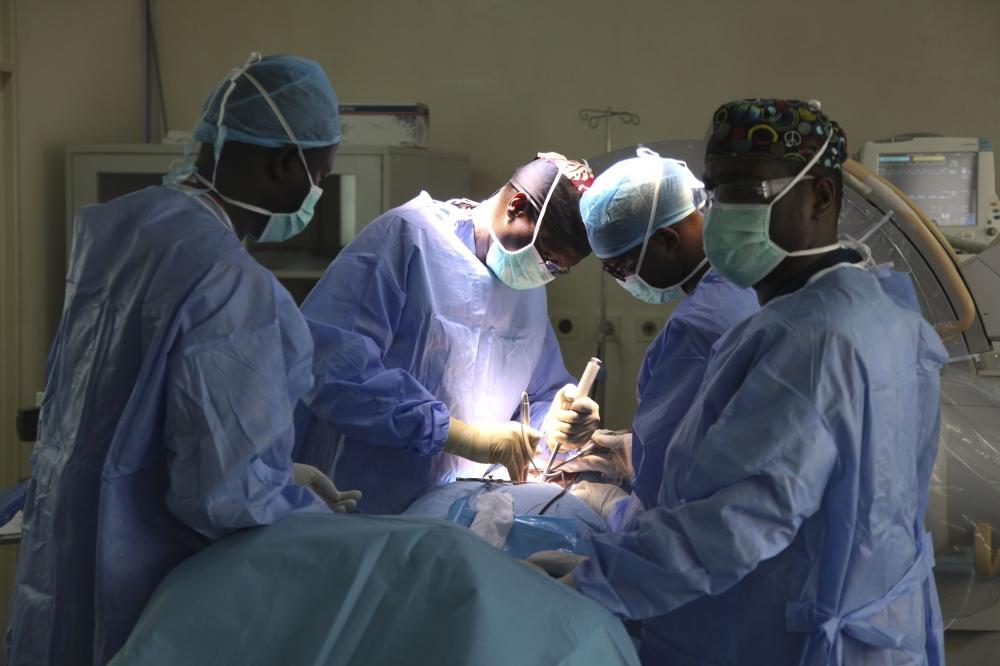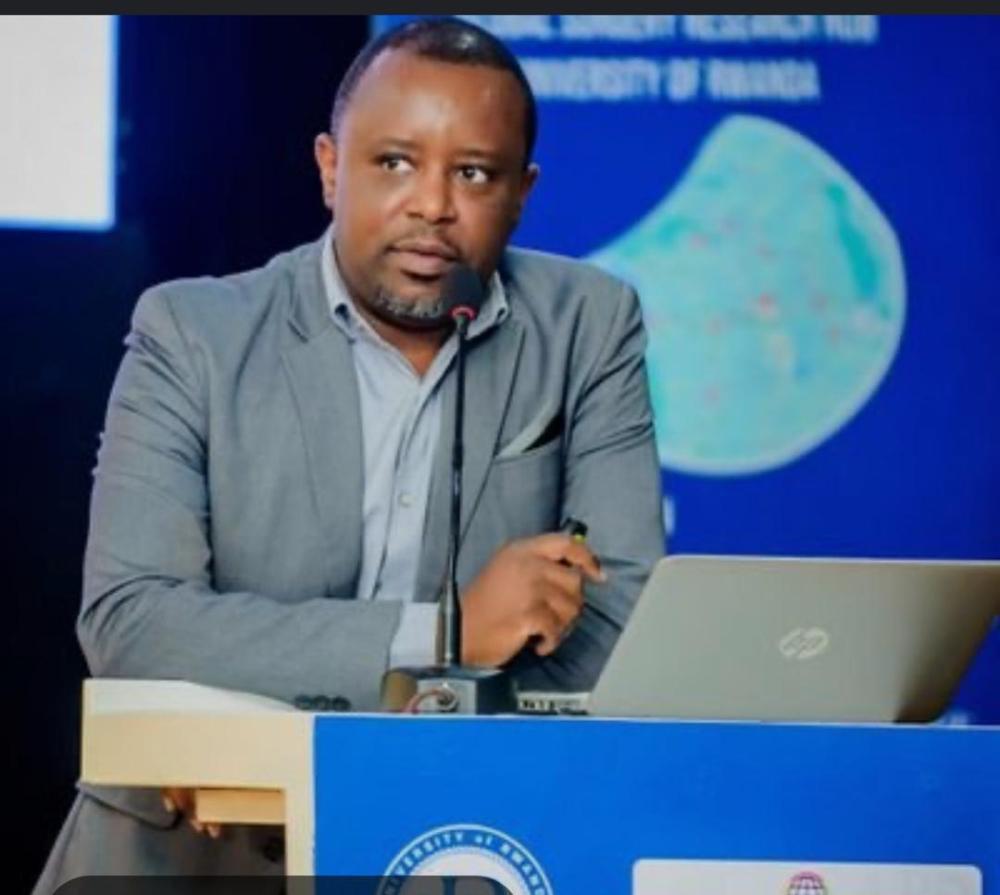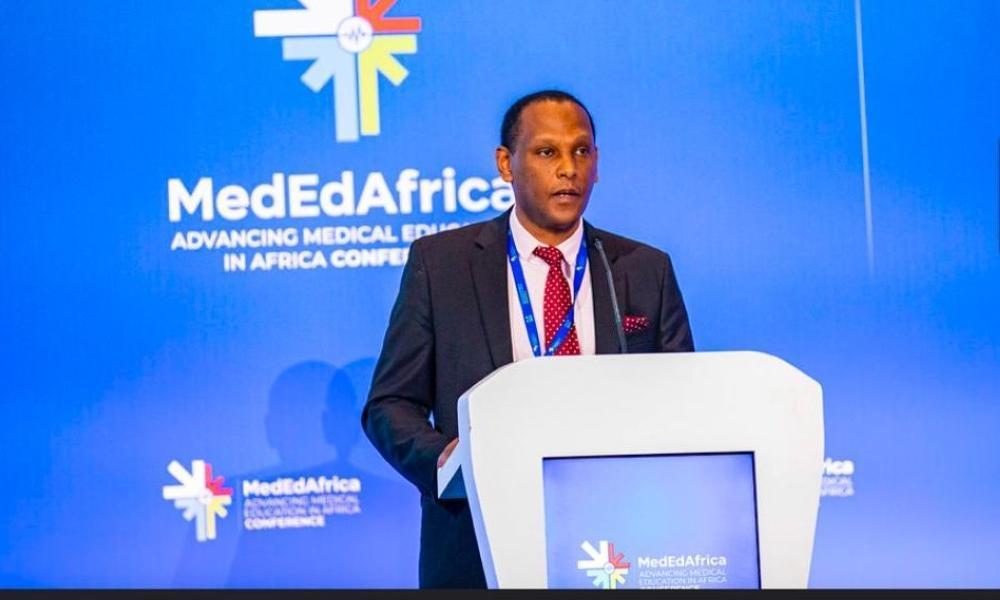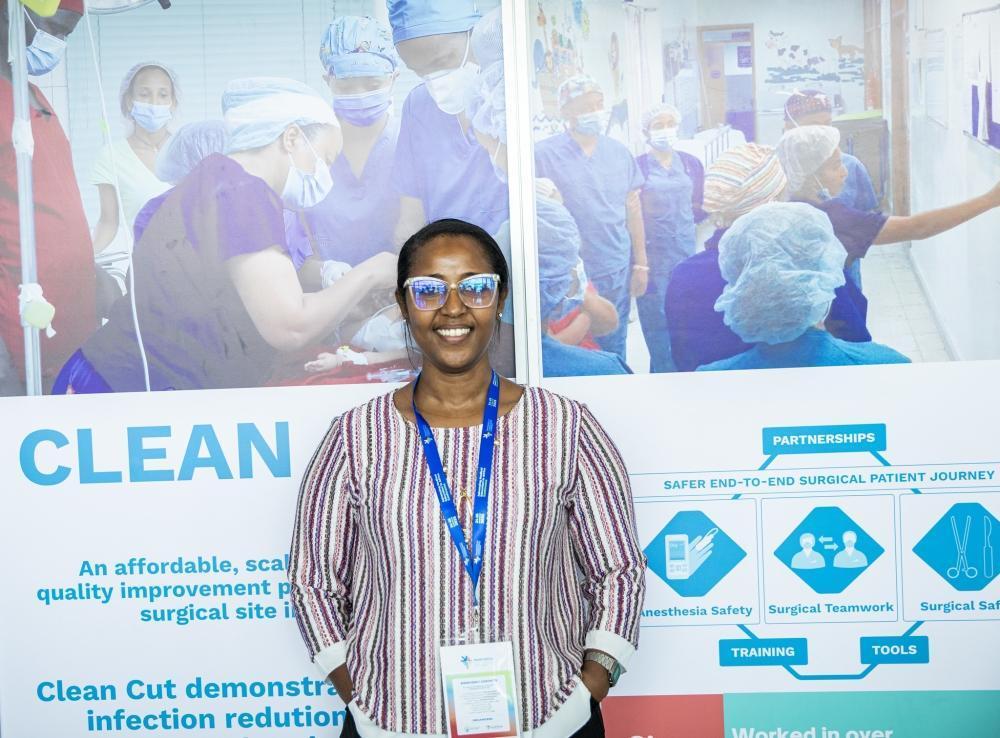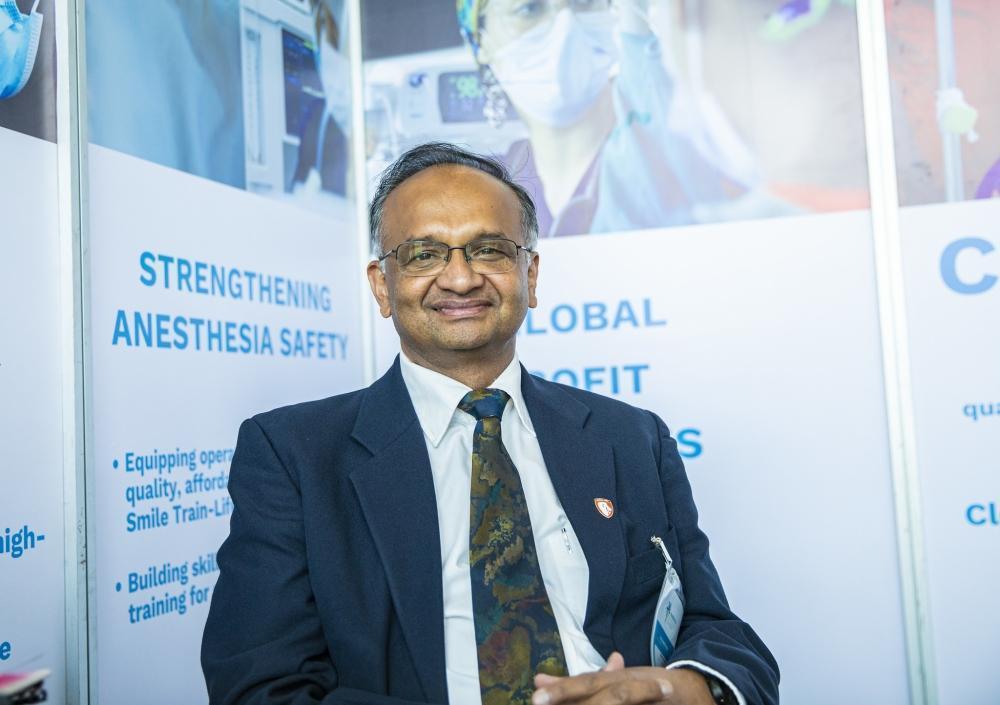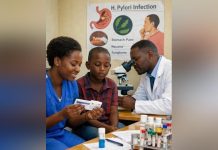Africa-Press – Rwanda. Surgery can save lives, but it also comes with risks. One persistent issue is surgical site infections (SSIs), which are a concern globally. A surgical site infection is a post-operative infection that develops at the site of or near the surgical incision or in the tissues or organs manipulated during surgery within 30 to 90 days of the procedure, depending on the type of procedure.
Surgical site infections are a significant complication of surgery, leading to increased illness and death, prolonged hospital stays, and higher costs. According to Dr. Faustin Ntirenganya, the Chair of the Department of Surgery at the University of Rwanda, SSIs account for 15% to 40% of post-surgical complications worldwide. Infection rates range from 12% to 15% in high-income countries but can reach up to 40% in developing nations.
Dr. Faustin Ntirenganya, the Chair of the Department of Surgery at the University of Rwanda.
“In Rwanda, a study published two years ago under Falcon and Cheetah trials places SSIs at around 24%, nearly double the rate in developed countries. This remains a nightmare for surgeons and patients, with serious consequences,” Dr. Ntirenganya said.
He explained that infections lead to re-operations, delayed hospital discharge, prolonged recovery, and increased costs.
“A single SSI can double the cost of surgery. The issue is multifactorial, with contributing factors related to patients, healthcare professionals, and the surgical environment,” he said.
Patient-related factors include pre-existing conditions such as diabetes, HIV, and immunosuppressant use.
“Poor hygiene also increases the risk of infection. Surgery itself can weaken immunity, making patients more vulnerable,” Dr. Ntirenganya noted.
Healthcare professionals play a crucial role in prevention. Sterility processes must be strictly maintained, from packaging to surgical instrument use, he said.
“Surgeons must handle tissues gently to maintain blood supply and ensure proper administration of preoperative antibiotics,” he added.
Environmental factors, such as hospital hygiene and infection control in operating rooms, are also critical.
“Operating theatres should have strict entry protocols, appropriate changing rooms, and adequate infection control measures. Minimizing SSIs requires multiple, parallel interventions rather than a single solution,” he emphasized.
Challenges in Rwanda
Dr. Ntirenganya highlighted human resources, infrastructure, and accessibility as key challenges.
“We need more surgeons, anesthetists, and specialized nurses. Rwanda currently has 162 surgeons, but we are targeting 1,000. This means we are operating with 10 times fewer specialists than needed,” he noted.
The country has 127 operating theaters, while projections indicate that three times that number is required.
“For every 50 hospital beds, there should be at least one operating theater,” he stated.
Surgical services are concentrated in Kigali, with 80% to 90% of non-obstetric surgeries occurring there, making access difficult for rural populations. Financial barriers persist, though recent revisions in service tariffs aim to improve affordability.
Regional collaboration and specialization
Dr. Ntirenganya stressed that surgical advancements in Africa should focus on mutual support rather than competition.
“Instead of every country developing the same expertise, we should create centers of excellence and share resources. For instance, if Rwanda specializes in plastic surgery, neighbouring countries can focus on other specialties, reducing the need to send patients abroad.”
“Rwanda has made progress in minimally invasive surgery and cardiac interventions. We are here to serve not only Rwandans but also the region and beyond. We welcome collaboration, whether it’s hosting experts or sending our trainees to learn from others,” he said.
Africa’s workforce crisis
Surgery accounts for 33% of the global disease burden, yet Africa struggles with inadequate practitioners and underdeveloped surgical systems. The continent has 3% of the global health workforce but bears 25% of the global disease burden, noted Dr. Abebe Bekele, a professor of surgery at the University of Global Health Equity (UGHE).
Abebe Bekele, a professor of surgery at the University of Global Health Equity (UGHE).
“Rwanda, compared to other African countries, is in a much better place. The Ministry of Health launched the 4×4 strategy two years ago, aiming to quadruple the number of surgeons, obstetricians, gynecologists, and anesthetists within four years. From just 100-150 practitioners, we are working toward reaching 600,” Dr. Bekele said.
The strategy is complemented by converting district hospitals into teaching hospitals, increasing operating theaters, and expanding sub-specialist training to provide more advanced care.
“Private hospitals and pharmaceutical companies are also emerging, strengthening healthcare options and supply chains. Local manufacturing of gloves, IV fluids, and consumables is essential,” Dr. Bekele added.
Improving surgical safety
Ensuring quality and reducing surgical mortality are priorities. NGOs like Lifebox, a global non-profit that works to improve the safety of surgery and anesthesia, are introducing initiatives to enhance surgical safety in Rwanda.
Lifebox’s chief program officer Senait Bitew Alemu.
Lifebox’s chief program officer Senait Bitew Alemu highlighted the impact of projects such as CleanCut, antibiotics timeout, and a perioperative nursing fellowship.
“CleanCut, implemented in four facilities, including Kibogora and Kirehe hospitals, has successfully reduced SSIs by improving compliance with safety measures. The antibiotics timeout project addresses overprescription, with promising results expected soon,” Alemu said.
Lifebox launched a nine-month perioperative nursing fellowship at Butaro Teaching Hospital to strengthen surgical care.
“We have donated surgical headlights and pulse oximeters, ensuring safer surgeries, especially during outreach programs,” she added.
Modernizing medical training
Dr. Thomas Weiser, a professor in trauma and surgical critical care at Stanford School of Medicine in the US, noted that the traditional medical curriculum has remained largely unchanged for over a century. He urged for modernization to equip professionals with skills suited to current challenges.
“Simulation training and task-sharing can enhance surgical proficiency. By training non-traditional practitioners to perform basic procedures like hernia repairs and appendectomies, we can alleviate the burden on fully trained surgeons,” Dr. Weiser said.
Recalling the success of nurse anesthetists in the U.S., who improved access to anesthesia services despite initial resistance, Dr. Weiser advised Rwandan medical institutions to provide world-class education while creating incentives for graduates to stay.
“These could include fostering strong community ties, ensuring reasonable income, and creating opportunities for practitioners to thrive within the country,” he suggested.
Equitable access and local manufacturing
Dr. Nobhojit Roy, a professor of surgery at UGHE, commended Rwanda for ensuring equitable access, contrasting it with private-sector-dominated models in some other countries.
Dr. Nobhojit Roy, a professor of surgery at UGHE
Rwanda’s Community-Based Health Insurance (CBHI) makes surgical care affordable, a model he advised other African nations to adopt.
Dr. Roy emphasized the need for local manufacturing to cut surgical costs and advocated task-shifting to address the continent’s surgeon shortage.
“There’s no shortcut in human resource development. We must train generalists, specialists, and sub-specialists locally, regionally, and internationally. In five or six years, they return to establish training systems here,” he said.
Healthcare professionals must be well-compensated, supported, and held accountable to ensure sustainable progress in the surgical field, he said.
For More News And Analysis About Rwanda Follow Africa-Press

